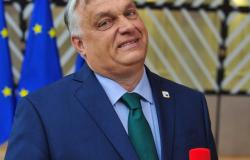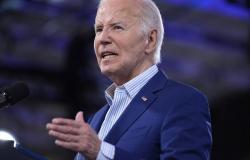The party only won three seats in the European Parliament after the 2019 election, a figure which is expected to double in the new chamber.
The national conservative FPÖ party comes out on top after the European elections on Sunday in Austria, according to polls published by the main media after the polling stations closed. He is credited with 27% of the votes, becoming the most important political force in the Alpine country for the first time in its history. They are followed by the conservatives (ÖVP) who, with just over 23%, are neck and neck with the social democrats of the SPÖ. The Greens have a score of 10.5%.
Crushed after the resounding Ibizagate corruption scandal, the Austrian Freedom Party (FPÖ) only won three seats in the European Parliament at the end of the 2019 election, a figure which should double in the new hemicycle. He has since recovered under the leadership of a radical leader, Herbert Kickl.
“Anti-vaccine” speech
Arriving at the presidency of the party in 2021, he was able to win back voters, in particular thanks to his speech “anti-vaccines” in the midst of the Covid-19 pandemic, in a country torn by strict health measures which went as far as confining the unvaccinated.
On the war in Ukraine, the 55-year-old tribune defends the “neutrality” of Austria, criticizing the support given to Ukraine and the EU sanctions against Moscow. During the campaign, led by MEP Harald Vilimsky, the party put up posters showing European Commission head Ursula von der Leyen hugging Ukrainian President Volodymyr Zelensky.
After this success in the European elections, the FPÖ hopes to win the legislative elections scheduled for the end of September, without guarantee, however, of finding partners to govern. Austria has had an extreme right established politically since the 1980s. It is in this country that it was associated with power at the national level, for the first time within the European Union, in 2000: 250,000 people had then protested in the street against the success of tribune Jörg Haider.
The FPÖ, founded in the 1950s by former Nazis, governed again between 2017 and 2019, still in coalition with the conservatives. In total, 6.4 million people can vote in the Alpine country, which has 20 seats in the European Parliament of 720 elected officials.






